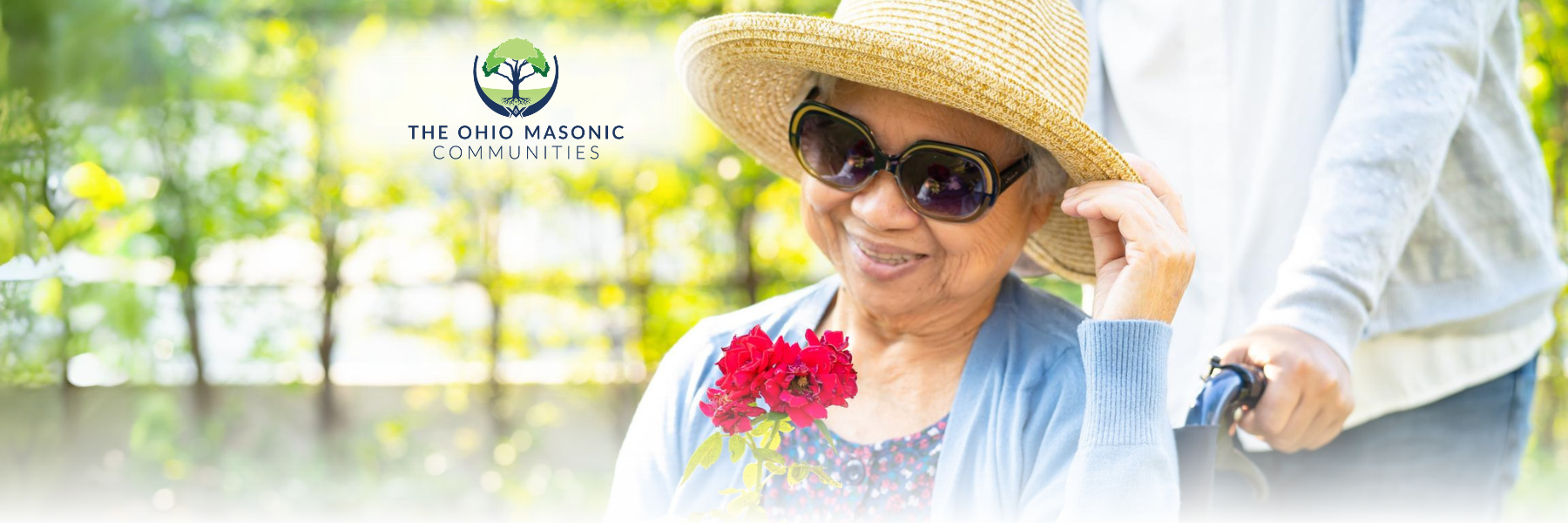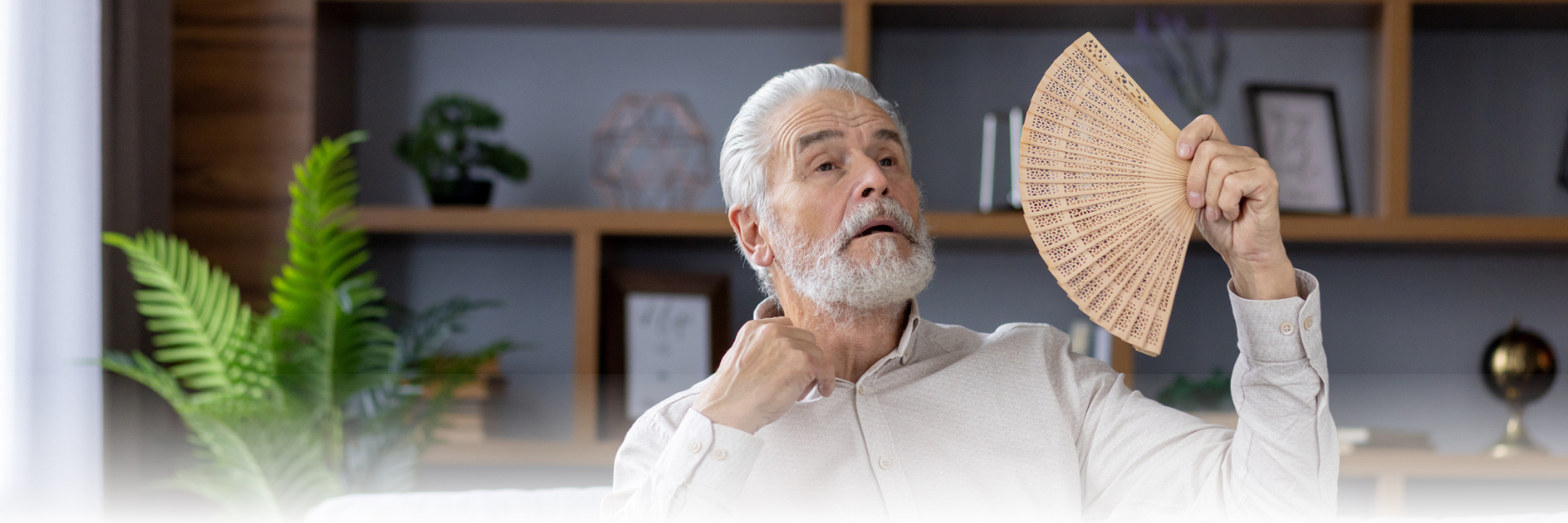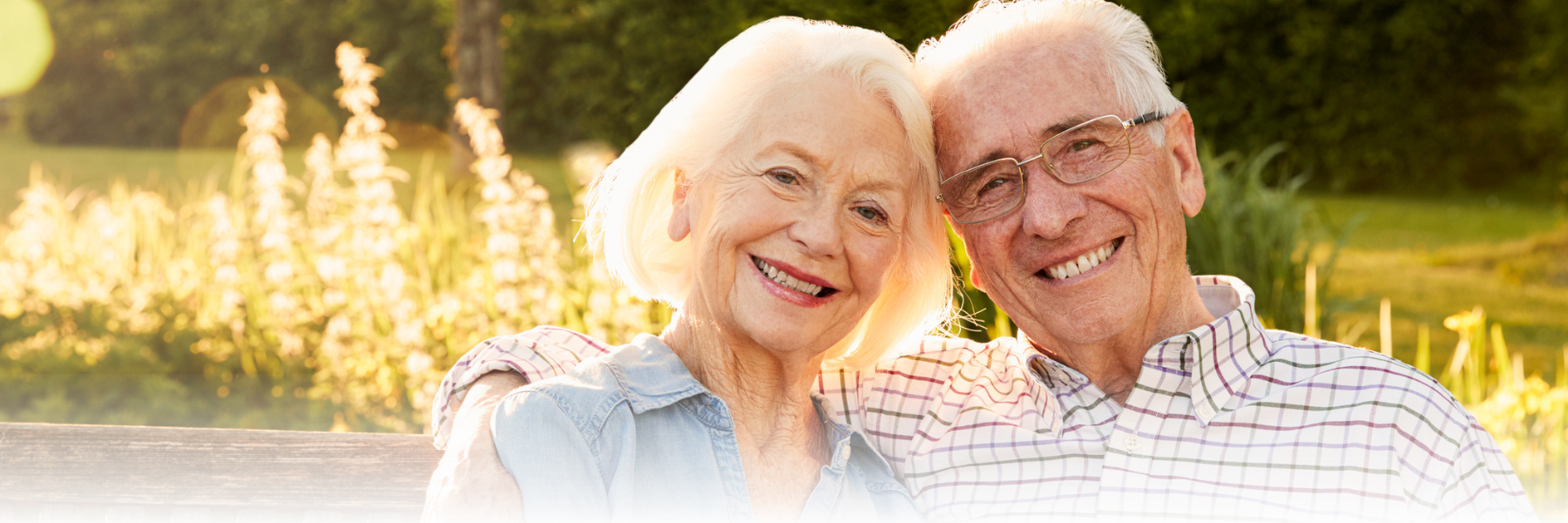
Staying Safe from the Heat This Summer
While we all enjoy the warm weather summer brings, too much heat exposure is not safe for anyone! It is even riskier if you are older or have health problems. It is important to be cautious and get relief quickly when you are overheated. Otherwise, you might start to feel sick or risk a heat-related illness that could cause serious health issues.
According to the Centers for Disease Control and Prevention, older adults are more susceptible to heat-related illnesses and injury. As people age, their bodies become less efficient at regulating temperature because older adults do not sweat as much as younger adults, and sweat is the body’s most important heat-regulating mechanism.
If the temperature is rising, you may be at increased risk for a heat-related illness. Stay safe by planning ahead for hot days. Listen to local radio or TV stations or check the weather app on your smart phone regularly for forecasts. In addition to the thermometer, pay attention to the heat index, which considers both air temperature and humidity levels, to determine what the temperature actually feels like.
Understanding Heat-Related Illnesses in Senior Adults
Being overheated for too long or being exposed without protection can cause many health problems. Heat-related illnesses include the following:
Heat Syncope
Heat Syncope is a sudden dizziness that can happen when you are active in hot weather. If you take a heart medication called a beta blocker or are not acclimated to hot weather, you are even more likely to feel faint. Rest in a cool place, put your legs up, and drink water to make the dizzy feeling go away.
Heat Cramps
Heat cramps are the painful tightening or spasms of muscles in your stomach, arms, or legs. Cramps can result from hard work or intense exercise. Stop the physical activity you’re doing and rest in the shade or in a cool building. Drink plenty of fluids, such as water and sports drinks containing electrolytes. Do not consume alcohol or caffeinated beverages as these can make the cramps worse.
Heat Edema
Heat edema is a swelling in your ankles and feet when you get hot. Put your legs up to help reduce swelling. Edema in your lower extremities can lead to a variety of circulatory problems and can be painful.
Heat Rash
Heat rash is a skin irritation from heavy sweating. It causes red clusters of small blisters that look similar to pimples on the skin. Your skin may feel itchy, or you may feel “prickly” tingling pain. Keep the infected area dry, use powder to sooth the rash, and stay in cool areas.

Heat Exhaustion
Heat exhaustion is a warning that your body can no longer keep itself cool. You might feel thirsty, dizzy, weak, uncoordinated, and nauseated. You may sweat a lot. Your body temperature may stay normal, but your skin may feel cold and clammy. Some people with heat exhaustion have a rapid pulse. Rest in a cool place and get plenty of fluids. If you don’t feel better soon, get medical care. Be cautious because heat exhaustion can progress to heat stroke.
Heat Stroke
Heat stroke is a medical emergency in which the body’s temperature rises above 104°F. Signs of heat stroke are fainting; confusion or acting strangely; not sweating even when it’s hot; dry, flushed skin; strong, rapid pulse; or a slow, weak pulse. When a person has any of these symptoms, they should seek medical help right away and immediately move to a cooler place, such as under shade or indoors. They should also take action to lower their body temperature with cool clothes, a cool bath or shower, and fans.
Sun Exposure
Sun exposure, also known as sunburn, is a sign of skin damage due to extreme or long exposure. Your skin may appear red and tender, develop blisters, start to peel, and be warm to the touch. Severe reactions may cause fever, chills, nausea, or rash. Prevent sunburn by wearing protective clothing that covers your skin and staying out of direct sunlight. Using a broad spectrum sunscreen with an SPF of 30 or higher can also help prevent sunburns, but be sure to reapply often. If you are sunburned, wear lightweight clothing, take cool showers, moisturize affected areas, and stay out of the sun so your skin can heal.
Tips to Stay Cool and Protected
Now let’s look at some helpful tips for staying safe in the heat this summer:
- Drink eight or more glasses of liquids, such as water, fruit or vegetable juices, or drinks that contain electrolytes. Avoid alcohol and caffeinated beverages. If your doctor has told you to limit your liquids, ask what you should do when it is very hot.
- Keep your space cool. If you live in a home without air conditioning or fans, try to keep your space as cool as possible. Limit use of the oven; keep shades, blinds, or curtains closed during the hottest part of the day; and open windows at night. If your living space is hot, try to spend time during midday in a place that has air conditioning. For example, go to the shopping mall, movies, library, senior center, or a friend’s home. You may also contact your local health department or city to find out if they have air-conditioned shelters in your area.
- Dress for the weather. Wear lightweight, light-colored, loose-fitting clothing. Natural fabrics such as cotton may feel cooler than synthetic fibers. Wearing sunglasses can block your eyes from harmful UV rays and protect your vision. When outdoors, protect your skin from damage by wearing hats, sunglasses and a sunscreen of SPF 30 or higher and that protects against both UVA and UVB radiation. If you do get sunburned, stay out of the sun until your skin is healed and use cool cloths and moisturizers to treat the affected area.
- Avoid outdoor exercising and other physical activity when it is very hot. Instead, try to find someplace you can be active while staying cool indoors.
- Limit your exposure to the heat. If you must go outside, try to limit your time out and avoid crowded places. Plan trips during non-rush-hour times.
- Use sunscreen. Make sure to use a broad-spectrum sunscreen, SPF 15 or higher, and reapply it throughout the day, especially if your skin will have continuous exposure to the sun. Wear a hat and other protective clothing, and sunglasses.
- Ask your doctor if any of your medications make you more likely to become overheated or sunburned.
- Limit your outdoor activity to the morning and the evening. In extreme heat and high humidity, evaporation slows down and the body must work extra hard to maintain a normal temperature. Keep in mind, the sun is the most intense between 10 am and 4 pm.

Staying Cool: Tips for Caregivers
As a caregiver, it’s crucial to ensure the well-being of older adults, especially during the hot summer months. High temperatures can pose serious health risks, but with a few simple steps, you can help them stay safe and comfortable. Here are some essential tips to beat the heat and keep your loved ones cool and hydrated.
- Visiting at least twice a day.
- Watching for signs of heat exhaustion or heat stroke.
- Making sure they have access to air conditioning.
- Helping them limit their exposure to the sun.
- Making sure they are getting enough fluids to keep them hydrated and have a normal body temperature.
Keep Safe and Enjoy Your Summer
By staying mindful of these tips and taking the necessary precautions, you can enjoy all the fun that summer has to offer while keeping yourself and your loved ones safe from the dangers of excessive heat. Stay cool and have a fantastic summer!
For more great tips on staying healthy and safe this summer, The Ohio Masonic Communities is your go to resource. With three senior living communities across the state of Ohio – Browning Masonic Community in Waterville, Ohio, Springfield Masonic Community in Springfield, Ohio, and Western Reserve Masonic Community in Medina, Ohio – each offers premier living options with exceptional experiences so senior adults can live their best lives. If you are interested in learning more about one of our communities, give us a call at 1-877-881-1623. We will be happy to answer all your questions and be a trusted resource in the search for the right community for you!